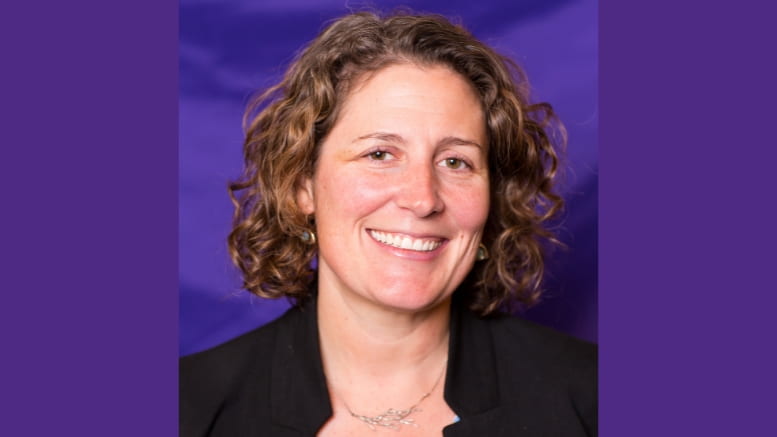Marrying localized data and community knowledge to solve global problems
For someone interested in environmental policy and biodiversity conservation, Kimberly Marion Suiseeya was excited to work in Laos, the small landlocked country bordered by Thailand and Vietnam.
Laos, after all, boasted a model conservation program. It was the first Southeast Asian country with a scientifically designed national park system, one in which 20 percent of the nation’s land was protected and every ecosystem was represented. Yet more, the government did not expel or relocate communities outside of the parks once they were established.
On paper, the country’s approach seemed progressive, thoughtful, and sharp – a model Suiseeya could potentially export to other parts of the world interested in safeguarding habitats and promoting biological diversity.
But once in Laos, Suiseeya found reality telling a different story.
“While we were trying to make sure communities were not harmed in our work, we weren’t really good at it. The approaches themselves constrained what would be possible on the ground to really address community concerns,” Suiseeya says. “I wondered: why aren’t our approaches to engaging communities working?”
“The environment itself is a really tough phenomenon to study and so it’s never just about natural, human, or social processes, but rather how all of these things interact. That’s why we need scholars deeply embedded within one particular phenomenon, but who can also speak across disciplines in order to both ask innovative questions and then find methodologies to answer those questions.” – Kimberly Marion Suiseeya
Justice and the environment
Ignited by that experience halfway around the world some 15 years ago, Suiseeya has devoted her professional academic life to investigating the justice dimensions of environmental governance, principally how different policies and approaches to addressing issues like biodiversity loss and climate change impact people and communities.
Since arriving at Northwestern University’s Weinberg College of Arts & Sciences in 2016, Suiseeya, an associate professor in the department of political science, has continued researching policy design and its ties to injustice as well as how communities, namely Indigenous communities, respond to injustice, including efforts such as the United Nations Framework Convention on Climate Change.
But Suiseeya’s exploration has led to a frustrating realization: much of the climate-related work of Indigenous Peoples was overlooked, if not ignored. As such, the justice possibilities languished and fell short of their potential.
Spurred by three distinct National Science Foundation grants, Suiseeya now aims to reorient how climate-related research is conducted with Indigenous communities and, even more, redesign approaches to environmental governance – or what Suiseeya calls “landscapes of justice possibilities for communities.”
Many minds, varied expertise
Suiseeya is presently working with 10 Ojibwe Nations across the upper Midwest to help them answer their own research questions around climate change. Specifically, Suiseeya and her research colleagues are focused on two concerns: first, the impact of climate change, industrial development, and other ecological disturbances on wild rice, a plant integral to Ojibwe life; and second, the erosion of their sovereignty.
It’s a layered, interdisciplinary research effort involving computer scientists, civil, environmental, and chemical engineers, legal scholars, and education specialists among others. Researchers from Northwestern’s McCormick School of Engineering, for instance, are currently deploying environmental sensors to help the tribes assess climate change and other development’s impact on wild rice, while Suiseeya’s “ground team” is digging into law and policy archives, conducting listening sessions, and attending policymaking events to analyze the emergence of sovereignty.
“The environment itself is a really tough phenomenon to study and so it’s never just about natural, human, or social processes, but rather how all of these things interact. That’s why we need scholars deeply embedded within one particular phenomenon, but who can also speak across disciplines in order to both ask innovative questions and then find methodologies to answer those questions,” says Suiseeya, a research fellow with the Earth System Governance Project and member of the International Union for Conservation of Nature and Natural Resources’ Commission on Environmental, Economic, and Social Policy.
Informed by Indigenous perspectives
True to form, Suiseeya says Indigenous intellectual leadership is playing a pivotal role in the effort, adding that the research team is united in understanding Indigenous perspectives and letting Indigenous knowledge guide their work.
“Indigenous ways of knowing are very different from your standard Western scientific approach in that they are inherently holistic, always thinking about the distinct relationships different parts of our world have and how those essentially interdependencies matter for how we understand the world and think about our future,” says Suiseeya, a fellow with Northwestern’s Center for Native American and Indigenous Research and the Buffett Institute for Global Affairs.
While the Ojibwe project stands in its infancy, Suiseeya remains energized by the possibilities of using data and research in local communities as a tool for self-determination, sovereignty, and tackling global problems like climate change and biodiversity loss. Such innovative, collaborative efforts, she says, will be necessary to bolster sustainable development around the globe.
“Ultimately, I’d like to keep working with different communities to build out frameworks for how we might govern our earth differently,” Suiseeya says.

